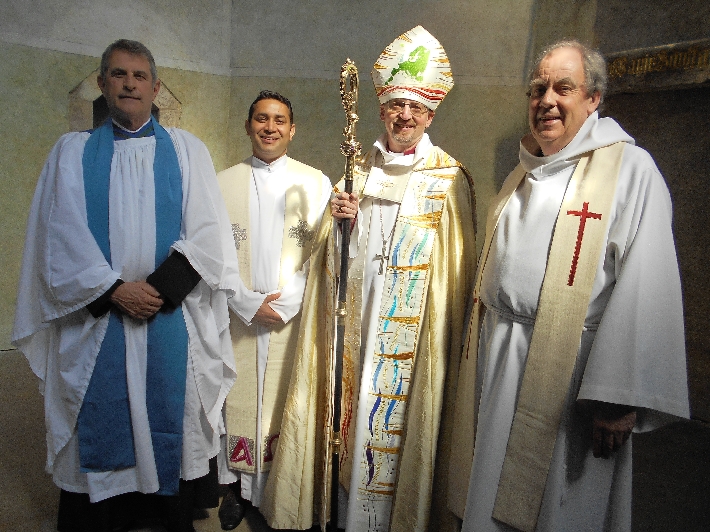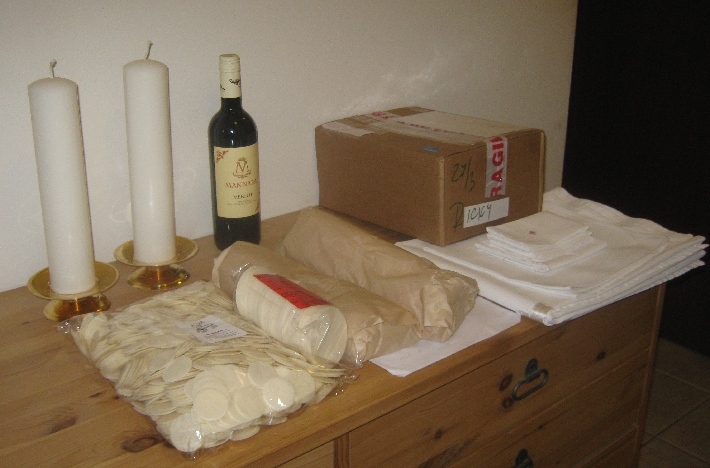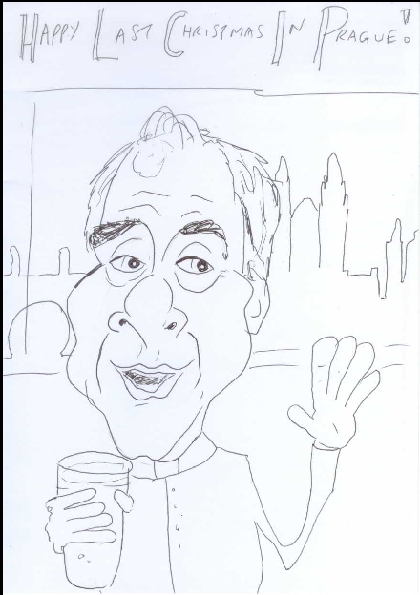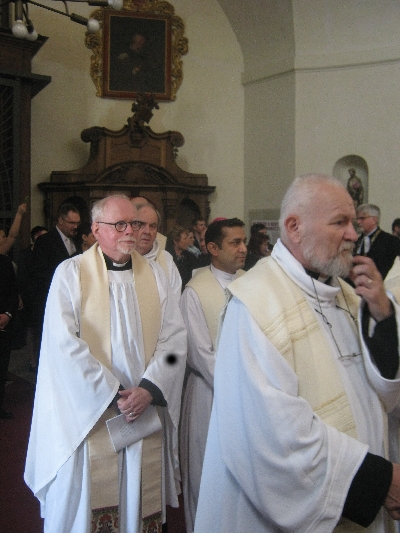
My last month as the Anglican Chaplain of St Clement’s, Prague, started with what can be best described as a ‘purple weekend’. It featured bishops – lots of them!
As I have explained many times previously on this blog, for legal and ecumenical reasons, St Clement’s is officially the English-speaking parish of the Old Catholic Church in the Czech Republic. Back in April 2016, at a synod meeting held at Želiv Monastery, Pavel Benedikt Stránský was elected to succeed the retiring Bishop Dušan Hejbal, as head of the Czech Old Catholics. Therefore on Saturday 1st April 2017, I attended what in English sounds like a contradiction in terms – the consecration of Pavel Benedikt Stránský as the new Old Catholic Bishop of the Czech Republic 🙂
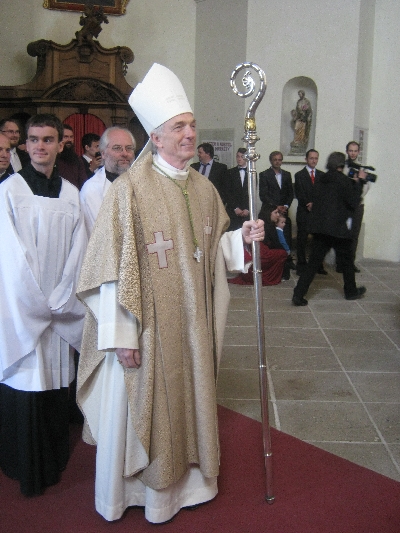
The Consecration Service took place in the Basilica sv Markéty, located within the Brevnov Monastery complex in Prague. The service was presided over by the Archbishop of Utrecht, Joris Vercammen, whose role within the Old Catholic Churches of the Union of Utrecht is very similar to that of the Archbishop of Canterbury within the Anglican Communion. Also participating were Old Catholic bishops from the Netherlands, Germany Switzerland and Austria.
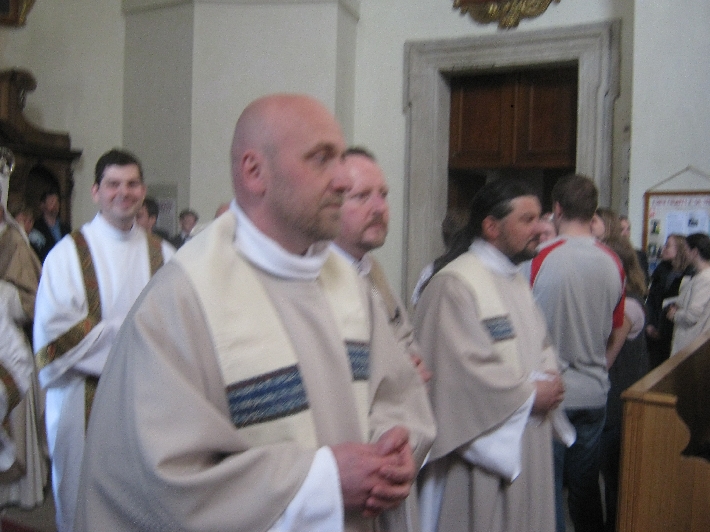
However, because of the Bonn agreement of 1931, by which Old Catholics and Anglicans, mutually recognise each others orders, Anglican bishops from the Episcopal Church of the USA, the Church of Ireland, the Lusitanian Church – Portuguese Episcopal Church, together with my Church of England Diocesan bishop, Rt Rev’d Dr Robert Innes, also participated in the Consecration Service.
The service lasted for nearly three hours and was conducted mainly in Czech and German, with a little English. It was, as Bishop Robert has himself written, a test in humility for us English-speakers! But it was good to be there, and see Bishop Pavel take up his role as head of the Old Catholic Church in the Czech Republic, before my own retirement, as he and Bishop Robert will have joint responsibility, for appointing my successor.
On the morning of Sunday 2nd April, Bishop Robert was the Celebrant and Preacher at our Sung Eucharist for the Fifth Sunday of Lent – Passion Sunday. Wanting to engage the St Clement’s congregation with the very long Gospel reading – the story of the raising of Lazarus as recorded in John 11. 1-45, he got me to read it in five separate sections with his sermon interspersed between each section. You can listen to the reading and sermon here. Within the service, he also confirmed three members of the congregation, Sebastian, Radka and John.
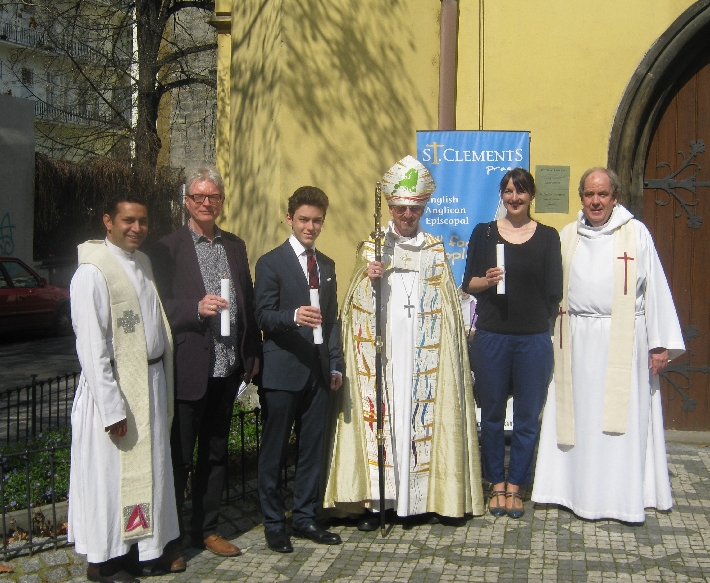
At an extended Coffee Hour with copious amounts of food, Bishop Robert met with members of the congregation, displaying his language skills by speaking in both French and Flemish/Dutch as well as English. Then, whilst I headed off to Brno for our regular monthly service in the second city of the Czech Republic, the Church Council met with Bishop Robert to discuss the future of the Chaplaincy and the strategy and timetable for appointing my successor.
